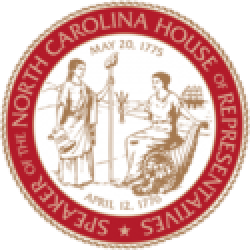Raleigh, N.C. – Representatives from North Carolina’s community colleges joined state House members at a press conference Wednesday to recognize the impressive economic impact of the higher education system’s 58 institutions.
Rep. Linda Johnson (R-Cabarrus ) joined Rep. John Sauls (R-Lee), Rep. Mark Brody (R-Union), Speaker Pro Tem Sarah Stevens (R-Surry), Rep. Frank Iller (R-Brunswick) and Rep. Ted Davis (R-New Hanover) at the event in the North Carolina General Assembly.
The House members were joined by Dr. Debbie Lamm, President of the North Carolina Association of Community College Presidents, Dr. Jimmie Williamson, President of the North Carolina Community College System, and Kirsten Stovall, President, NC Community Colleges Comprehensive Student Government Association.
Rep. Linda Johnson released an excerpt of her remarks:
“Today, we celebrate our North Carolina Community Colleges System and the work they do for our State. Community colleges are an integral part of the economic vitality of North Carolina.
Our community college system is the third largest in the nation with 58 colleges serving all 100 counties. In fact, 99% of North Carolinians live within a 30 minute drive of a community college location.
This accessibility, along with affordability and high quality programs, are some of the reasons an estimated 710,000 students enrolled at one of the 58 colleges during the 2015-2016 academic year.
Despite community colleges’ broad impact on the state, too often this impact is not adequately understood and appreciated. Today, I want to highlight how community colleges are helping move this state forward.
As the primary provider of workforce training in this State, community colleges are now, and always will be, a part of the economic growth and stability of North Carolina.
From students looking for a career to workers looking to improve their skills to business and industry looking for highly skilled employees, community colleges are meeting those needs. For business and industry, community colleges are nimble and responsive to their changing needs.
For students, community college workforce programs offer short-term, affordable training opportunities with flexible scheduling allowing individuals to advance or jump-start a new career.
Furthermore, our community colleges are hallmarks of success with nearly 85% of community college students passing their state licensure and exams on the first attempt.
Our community colleges also provide customized training directly to business and industry through education, training, and support services. The BioNetwork program provides training, professional development, and student engagement to support the biosciences industry. North Carolina community colleges also work closely with small businesses and entrepreneurs.
The NC Community Colleges Small Business Network is the most extensive, state-funded small business assistance program in the nation.
Through the Career and College Promise Program, community colleges offer high school students the opportunity to earn college credit – tuition free — while in high school. The college transfer pathways provide tuition-free course credits toward an associate degree that will transfer seamlessly to any public or participating private college or university.
High school students can also earn tuition-free course credits toward a job credential, certificate or diploma in a technical career.
For students who want to transfer to a four-year institution, the NC Community College System has entered into agreements with The University of North Carolina and many NC Independent Colleges and Universities that allow students who complete an associate degree at a community college to transfer to the four-year institution with junior status, thus saving students and their families thousands of dollars.
North Carolina’s community colleges have touched and improved so many lives and will continue to do so in the future. Therefore today, we recognize and honor our community colleges and thank them for all that they do for North Carolina.”


